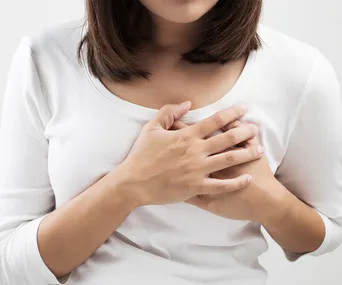While previous research has shown the consumption of soy products to be potentially detrimental – one particular study showed that by a medium amount of soy to one’s diet may in fact activate genes that make cancer cells spread – new findings have proven, that in some cases, they can have quite the opposite effect.
The research, published in the journal CANCER has discovered that the isoflavones found in soy products actually slowed the progression of an aggressive form of the disease commonly known as hormone receptor-negative breast cancer.
Isoflavones, which are plant-based compounds that resemble estrogen, were previously thought to speed up the production of cancer cells, but after collecting the data from over 6000 breast cancer sufferers, the researchers from Tufts University in Massachusetts were finally able to clear their name.

Last month, high breast density and glandular tissue were identified double the risk of developing contralateral breast cancer of family history.
That’s right, over the course nine years, those who consumed naturally occurring isoflavones in large amounts were actually 21 per cent less likely to die than those who consumed small amounts.
For the most part, the decrease was confined to women with hormone receptor-negative tumours, and sufferers who were not treated with anti-estrogen therapy such as tamoxifen (which blocks the effects of estrogen).
“Based on our results, we do not see a detrimental effect of soy food intake among women who were treated with endocrine therapy,” says lead author Dr Fang Fang Zhang.
“For women with hormone receptor-negative breast cancer, soy food products may potentially have a protective effect. Women who did not receive endocrine therapy as a treatment for their breast cancer had a weaker, but still statistically significant, association.”
Senior author Esther John agrees. Adding: “Our findings suggest that survival may be better in patients with a higher consumption of isoflavones.”
How exactly isoflavones from foods interact with breast cancer cells is yet to become clear, however researchers hypothesise that their antioxidant, anti-inflammatory and anti-angiogenic properties could well have an impact on tumour survival and growth.
In Australia alone, one in eight women will be diagnosed with breast cancer in their lifetime, with eight women losing their battle to the illness each day. It is the most common form of cancer among women.
What are the signs and symptoms of breast cancer?
Besides a breast lump, which 83 per cent of diagnosed women bring to their doctors, women should also seek professional advice
for:
Nipple abnormalities including redness, crusting or clear/bloody discharge
Breast pain or discomfort
Breast skin abnormalities
Breast ulcerations
Swelling or lump in the armpit
Back or muscular pain
Breathlessness
Changes to the contour or shape of the breast
Early detection is vital and can save lives. If you’re experiencing any of the above symptoms, wish to find out more, or want to book in for a check-up, visit your local GP today.



